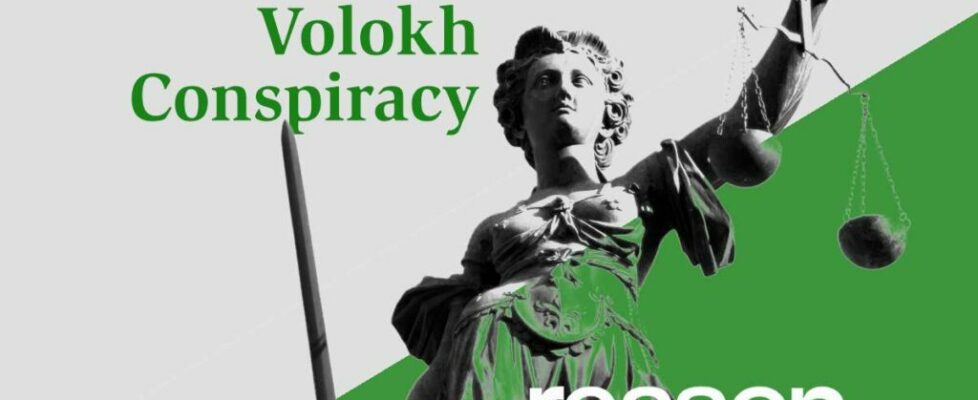Supreme Court Grants Certiorari in Nondelegation Case
Yesterday, as predicted, the Supreme Court granted certiorari in Federal Communications Commission v. Consumers’ Research (consolidated with SHLB Coalition v. Consumers’ Research). This case arises out of challenges to the constitutionality of the FCC’s Universal Service Fee, and may produce a major administrative law decision–but the Court also gave itself an out.
As I noted here, the U.S. Court of Appeals for the Fifth Circuit, sitting en banc, concluded that the fee is unconstitutional. By a vote of 9-7, the court concluded that this fee is, in effect, a tax, and that insofar as the level of the fee is set by a private entity (the Universal Service Administrative Company), this violates the nondelegation doctrine.
As is nearly always the case when a federal court concludes a federal statute is unconstitutional, the Solicitor General filed for certiorari, and certiorari was granted. Here, the SG’s petition posed three questions:
In 47 U.S.C. 254, Congress required the Federal Communications Commission (Commission) to operate universal service subsidy programs using mandatory contributions from telecommunications carriers. The Commission has appointed a private company as the programs’ Administrator, authorizing that company to
perform administrative tasks such as sending out bills, collecting contributions, and disbursing funds to beneficiaries. The questions presented are as follows:1. Whether Congress violated the nondelegation doctrine by authorizing the Commission to determine, within the limits set forth in Section 254, the amount that providers must contribute to the Fund.
2. Whether the Commission violated the nondelegation doctrine by using the Administrator’s financial projections in computing universal service contribution rates.
3. Whether the combination of Congress’s conferral of authority on the Commission and the Commission’s delegation of administrative responsibilities to the Administrator violates the nondelegation doctrine.
Note that this case both presents traditional nondelegation questions–whether there are limits on Congress’ power to delegate authority to a federal agency–but also what is referred to as the “private nondelegation doctrine.” This latter doctrine concerns whether there are distinct limits on the ability of Congress to delegate (or authorize the delegation of) power to private entities. Concluding there are limits to the delegation of power to private entities (or limits on the ability of agencies to subdelegate such power) does not require concluding that the nondelegation doctrine itself has much force. In other words, the Court could conclude that the method of determining or imposing the Universal Service Fee is unconstitutional without overturning or tightening the “intelligible principle” standard reaffirmed in Whitman v. American Trucking Associations.
But it is also possible that the Court will not even reach the nondelegation question. In granting the SG’s petition, the Court added an additional question to the case. From the order:
In addition to the questions presented by the petitions, the parties are directed to brief and argue the following question: Whether this case is moot in light of the challengers’ failure to seek preliminary relief before the Fifth Circuit.
Concluding the case is moot would enable the Court to avoid the merits question. It is also an interesting addition to the case as this is one of several cases in which the Court is (in effect) considering whether some lower courts have been too permissive in hearing challenges to agency actions. This is something of a theme in this term’s administrative law cases and will be worth watching.
The post Supreme Court Grants Certiorari in Nondelegation Case appeared first on Reason.com.
